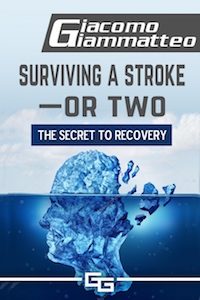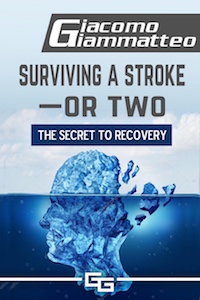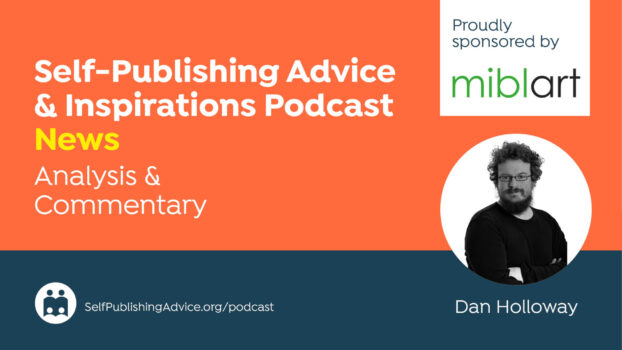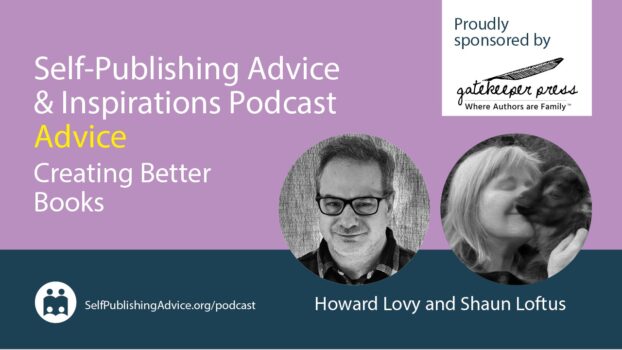
Jim Giammatteo, record-breaking indie author-publisher
Whether or not you as a writer subscribe to the current trend in some indie author quarters for fast-and-furious self-publishing of as many books as possible, (and this post is not the place to discuss that issue), none of us should fail to be amazed by Giacomo (Jim) Giammatteo‘s latest achievement: to set a new world record for the most books published by a single author in a year.
It's especially impressive on two fronts:
1 – that he not only wrote the books but was the publisher too
2 – that this feat follows a period of very serious and disabling illness
I suspect only an indie author could achieve or would even consider attempting this kind of feat, thanks to the freedom and flexibility that our independent status offers us.
So many indie authors are already thankful to Jim for the advice and guidance he's shared as ALLi's original Watchdog, and via his own blog and books about writing. This story of recovery and rehabilitation as an author will inspire us all.
Over to Giacomo Giammatteo to tell you more…
How to Write a Lot of Books
World's Record: Most Books Written in One Year
As many of you know, back in early 2015, I suffered two heart attacks and two strokes. I was about as close to death as I ever want to be, but thanks to some fantastic therapists, I was released from the hospital three and a half months later, and with continued therapy was able to learn to type again a year and a half later.
The first year, I couldn't do anything; in fact, I had a tube peg in my stomach to allow me to eat until after Christmas. But by June 2016 I was able to type again, albeit slowly. I think I was only doing about 15 words per minute.
I couldn't use voice recognition either because my voice has been greatly affected and the program could not understand me.
By September, I showed great improvement, and it was obvious that the therapy was kicking in. By the end of the year, I was up to 30 words per minute—a far cry from where I used to be, but much better than nothing.
Since I was in forced retirement (disabled), I decided to do something about it and set my mind to do nothing but write. The result—in 2017, I managed to break the world's record for most books written and published in one year. The record was 30. My total was 37. You can see the record here. I've also submitted it to Guinness Book of Records, but it hasn't been acknowledged yet.
That's a book about every ten days.
When I first started writing, I wouldn't have thought this possible. Sometimes, I look back and still think it's not possible. But it was.
And it wasn't just writing. I had to make covers (ebook and print) for each book, but the wonderful Natasha Brown did that, and I had to have them all edited. I worked with six different editors because one couldn't keep up. I did all the formatting myself. Proofreading was by two professionals.
Back to the Impossible: Most Books Written in One Year…
The key to writing so many books was being able to work on a lot of books at once. I would start the day on a mystery book. If I hit a stumbling block of any sort, I'd switch to a fantasy, or a grammar book, or a children's book.
In this fashion, I never got bored or tired of working in one genre.
When I finished with a book, I sent it out to beta readers. When I got it back, I'd make changes based on their suggestions, then send it to the editors. All the while, Natasha would be working on the covers. And when the editors sent the work back to me, I'd make the final changes then have it proofread.
The books include many genres:
- mystery
- science fiction
- fantasy
- nonfiction, including grammar, writing, publishing and productivity
- children's books, both fiction and nonfiction
The children's books are smaller—some from 60-100 pages—but the fantasies are much larger. two of them weighing in at more than 800 pages. The mysteries are about 400 pages.
All told, the page count is about 7200.
For those of you who are mathematically challenged—that's about twenty-four 300-page books, or about 1,800,000 words. I have two more mysteries that are almost done but not quite. They'll have to wait until next year.
I need to keep writing so that I can keep selling. Most of this was started because my wife and I still have an animal sanctuary to take care of, and it's not inexpensive. With me being on disability, money has to come from somewhere.
All of the money from my books, I use to take care of the animals. They provide the inspiration to keep going.
A Book Every Ten Days Is Not Possible
I said earlier that I didn't believe it was possible to write so many books, but a few years ago, Melissa Foster and Russell Blake inspired me with the number of books they were publishing. I had grown up to expect one book per author per year. That was now changing. I made up my mind that if Melissa and Russell could do it, so could I. I had the added benefit of being forced to sit on my ass every day, so even if I had wanted to take a break and go somewhere, I couldn't.
I think another key factor was that I had almost 20 months to sit on my butt and do nothing but think. I couldn't write these thoughts down, but they were sitting in my head waiting for the day that I could.
What Now?
Now that I'm done, what will I do? Keep writing. And I'll keep writing for a number of reasons.
- I have nothing else to do that's productive
- I still have to take care of the animals (at least the financial aspect)
- I love writing
I used to knock people who wrote fast and put out a lot of books. I thought they must be producing garbage. I equated quantity with lack of quality. Now, I look at it differently.
My mother used to say that everything had a silver lining. Looking back on it, having my heart attacks and strokes provided the impetus for this to happen. I wouldn't recommend it as a way to inspire you, but if it does happen, know that life isn't over. There is still a lot that can be accomplished.
And if you've had a stroke—or any disabling event—you may want to read this:

Inspiring reading on many levels
If you enjoyed this post, please share.
Giacomo Giammatteo is the author of gritty crime dramas about murder, mystery, and family. And he also writes nonfiction books including the No Mistakes Careers series as well as books about grammar, publishing., and children’s fiction and nonfiction.
When Giacomo isn’t writing, he’s helping his wife take care of the animals on their sanctuary. At last count, they had forty animals—seven dogs, one horse, six cats, and twenty-five pigs.
Oh, and one crazy—and very large—wild boar, who used to take walks with Giacomo every day.
He lives in Texas where he and his wife have an animal sanctuary with forty-five loving “friends.”
If you want to see the list of all the books, go here.
An inspirational #selfpub success story for record-breaking indie author @JimGiammatteo Click To Tweet




What an amazing, inspiring story! Thank you for sharing it! I’m in awe of what you’ve managed to accomplish…wow…
Thanks, Maggie. That’s why I wrote about it, hoping that it would help others. I’d like people to know that your life may be altered by a stroke (or whatever) but it doesn’t mean life is over. There are still things you can do.
Jim, thanks so much for sharing your inspiring story. I had a stroke at age 40 and it was a life-changer. I plan to pass along your story to the community of stroke survivors I’m in touch with. For people who have recently had a stroke and are feeling hopeless, stories such as your own are a beacon of light. You show us that with time, healing, and just plain hard work, you not only don’t have to be defined by your medical hardships, but you can accomplish far more than you ever thought possible in your pre-stroke days! Way to go.
Amy: I’m sorry to hear of your stroke. I hope you’re recovering as much as possible. As to stroke survivors, I was lucky that I had great therapists. They pushed me to achieve more even when the doctors were saying it was hopeless. Several doctors said there would be no progress after the first year but that’s when I’ve seen the most progress. The first year I was still eating from a tube peg in my stomach. If any of the stroke victims you know want to read my book on Surviving a Stroke—or Two, let me know and I’ll send it to them free.
Jim, thank you for sharing your inspiring story. I had a stroke at the age of 40 and it was a life-changer. I plan to pass along your story to the community of stroke survivors I’m in touch with. It helps so much–especially for people who have recently suffered a stroke are are feeling hopeless–to hear what is possible with time and healing and just plain hard work! Way to go.
ThMaggie, that was the reason for sharing. I want people to know that life isn’t necessarily over when something bad happens. There is still a lot I can’t do, like walk, but there are other things I can do to fill voids.
Wow, Jim. That’s making lemonade with a vengeance. I think you’re driving home an important message: if you have the writing skills in place, if you have an editing team, if you have a good cover designer, if you’ve learned to format well (or get it done), then really it’s up to you how many books you produce a year.
I wouldn’t recommend the pace you’ve set to a new writer who hasn’t got all the building blocks figured out, but I’m finding for myself that each new book is a little easier than the last one and I’m starting to push myself harder with production and marketing schedules.
Your story also shows me that with a good team, I could keep my business going through illness if necessary. That’s an important factor to consider with a milestone birthday just a couple of years away!
Exactly, Jane. Having a good team is the key. I couldn’t have done it without Natasha or the editors. I ended up using six editors, but Natasha did all the cover work herself. She was fantastic.
Wow! Just wow! This is inspiring on so many levels. Though I’m healthy, as far as I know, having a heart attack or stroke is my most frequent nightmare. I know many people who have come back from a heart attack and been able to write again within three to five months. However, I know no one, until now, who has come back from a stroke (nevertheless two) and been able to write more than one book a year.
By sharing your story, you have put my stroke nightmares in a better place. I know everyone is different, but it definitely gives me hope. Thanks for sharing your story.